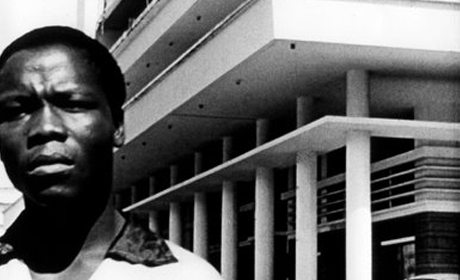The term is employed abundantly in today's global landscape.
I hadn't uncountered this word until recently when I heard Aminata Traoré on a radio show called Eclectik on France Inter, with Rokia Traoré as guest of honour. The show was centered around multiculturalism, new developments on the African continent, and the relationship between China and Africa.
The introduction for Rokia Traoré couldn't set the tone better:
"Neither a princess nor a griot.
She doesn't were a boubou but a shaved head façon Grace Jones.
She may be born in Bamako, but her parents are neither poor nor polygamous.
In short, she has everything to annoy those who support the clichés of the good African savage.
Not quite exotic for whites and too white for blacks, she is now of the right color.
Rokia Traoré leads her boat and her black velvet voice on the road of prejudices, of Mali and blues.
A voluntary exile who had set up her small inner world where the north and south are nomadic like her."
During the show Rokia and Rebecca speak about the different influences that nourish her art, how to embrace different cultures whilst staying essentially Malian, and of course gave a bit of insight into the economic and social conditions of Africa, with the return of the young generation who wants to invest in the continent.
This is where we get to Pauperization. This plea from Aminata Traoré is an excerpt from Bamako. For those who understand french, you can listen to her by clicking on the track in the playlist, on the right hand side of the page, otherwise this is a traduction of her speech.
"Africa is victim, not of its poverty, but of its wealth. When a woman is dying in a village where the chemist has got the medication that could save her, but refuses to treat her because she doesn't have the money to pay, this system of pay or die, this is what the west teaches and what Africa is inflicting herself. Africa is embarked in an ideal of society that it can't afford. What is needed of Africa today is to regain possession of its destiny."
There is also an audio track of Rokia Traoré, about Nelson Mandela, available in the playlist, again it's in french.
This is what she says about him:
"With all the power Nelson Mandela had, he could have made things explode, it's so easy to damage everything rather than build. But he didn't do it, and instead he used his power to build. His gesture is a real lesson for the world and for Africa, and everytime there is a war in Africa I wonder if they thought about him, what he did for this Africa he believed in and fought for, do they think of the greatness of this gesture, that each african should have such a gesture once in his life, so that one day Africa can stand up again. Africa is in need of such grand gestures."
The show ends on the tightening relation between Africa and China to bring new investment. A lot of Africans also choose to go to China to import cheap stock in their home countries, but caution remains in regard to what we exposed above: will Africa benefit more from this new partner than with Europe?
At least things are clear with China, when they invest somewhere they don't come for charity.




